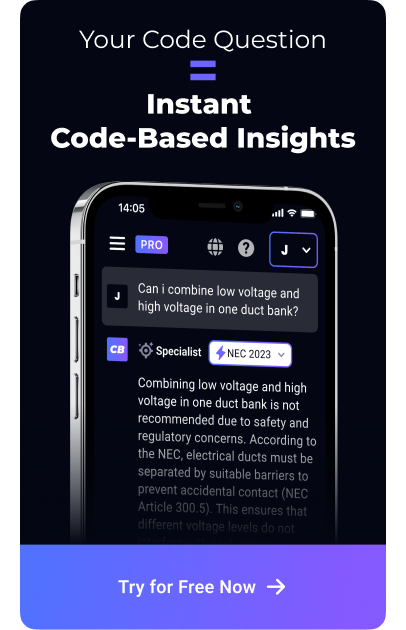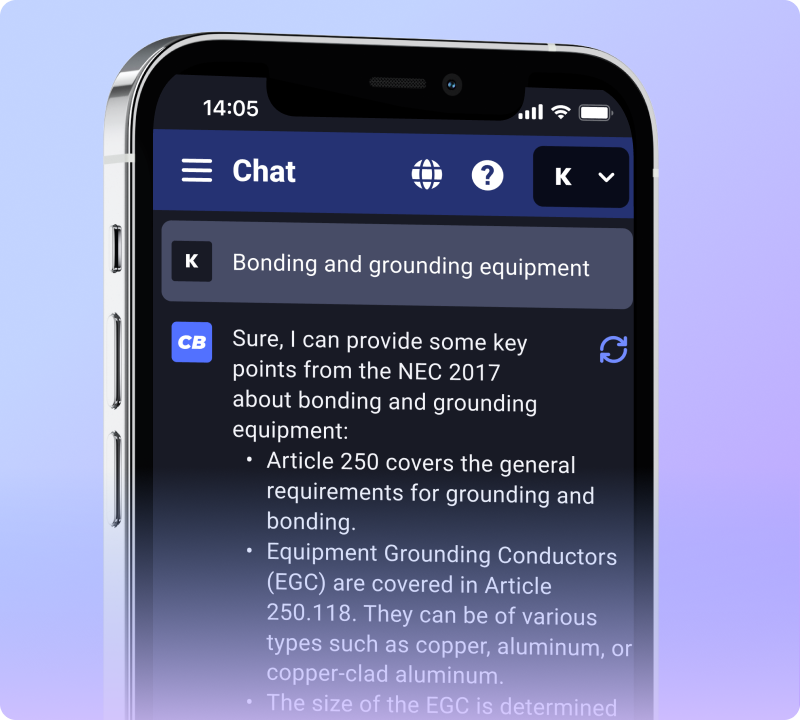Keeping up with the latest regulations can be tough for construction professionals. One key area of focus is the Maine plumbing code. This blog will guide you through the new updates, ensuring your projects stay compliant.
Stay tuned to learn more!
Key Takeaways
- The Maine Plumbing Code of 2021 follows the Uniform Plumbing Code (UPC) 2021. It brings new standards for plumbing fixtures, water heaters, and supply systems to ensure safety and quality.
- Significant updates include compliance with building construction codes, energy conservation codes, and an online system for all licenses, exams, and renewals. Free training manuals are available to assist plumbers in meeting state regulations.
- Professionals must understand building construction codes regarding plumbing installations. They cover plumbing piping regulations, fixture requirements, and water supply systems to maintain public safety.
- Water supply regulations are crucial for safe water access. The code sets standards for sizing, materials, installation practices of pipes plus connections to water sources ensuring public health protection.
- Plumbers need permits before starting work and must comply with sanitary standards during installations. This includes following guidelines for waste disposal methods to avoid issues during inspections and ensure public health safety.
Understanding the Latest Maine Plumbing Code Regulations
The latest Maine Plumbing Code regulations set clear rules for construction professionals. These guidelines ensure plumbing systems meet safety and performance standards in every project.
Adoption, Purpose, and Scope of Code
The Maine Plumbing Code 2021 is based on the Uniform Plumbing Code (UPC) 2021. It sets standards for plumbing fixtures, water heaters, and water supply systems. This code ensures that installations meet safety and quality guidelines.
Compliance with the code helps maintain sanitary standards in plumbing.
Construction professionals should familiarize themselves with this updated code to ensure their work aligns with state regulations. Understanding these rules is essential for effective plumbing installations and obtaining necessary permits.
Main Changes and Updates in the Code
The Maine Plumbing Code 2021, based on the UPC 2021, introduces significant updates. It sets new standards for plumbing fixtures and fittings. These changes enhance water supply and sanitary regulations throughout the state.
The code now aligns with MRS Title 32, Chapter 49, and Title 30‑A, Chapter 185, subchapter III.
Professionals must pay attention to these modifications. They require compliance with updated building construction codes and energy conservation codes as well. Licensees will use an online application system for all licenses, exams, and renewals moving forward.
Training manuals are available at no cost to support certification efforts in the plumbing industry in Maine.
Compliance and Enforcement
Compliance and enforcement play a crucial role in the Maine Plumbing Code 2021. This code requires strict adherence to plumbing standards and regulations based on the Uniform Plumbing Code from 2021.
Plumbers must follow building codes, sanitary standards, and water supply regulations during installation.
The Plumbers’ Examining Board oversees compliance efforts. Licensees must use an online application system for licenses, exams, and renewals. Minimum rules concerning plumbing enforce proper installations and practices across Maine.
Access to training manuals supports plumbers in meeting these requirements without any charge. Compliance ensures safety and quality in all plumbing projects within the state.
Important Regulations to Know
Construction professionals must stay informed about essential plumbing regulations. These rules shape the standards for building, installation, and maintenance in Maine.
Building Construction Codes
Maine’s Building Construction Codes include essential plumbing regulations. These codes establish safety standards for plumbing installations and ensure compliance with the Maine Plumbing Code 2021, which relies on the Uniform Plumbing Code from that year.
The rules cover various aspects, including plumbing piping regulations, fixture requirements, and water supply systems.
All professionals involved in construction must understand these codes. Strong knowledge helps ensure public safety and efficient building practices. Plumbers must also obtain the necessary permits before starting any work to comply with local guidelines.
Following these codes not only ensures smoother inspections but also protects everyone involved in a project.
Water Supply Regulations
Building construction codes set the stage for effective plumbing systems. Water supply regulations play a critical role in maintaining safe and reliable water access. The Maine Plumbing Code 2021 establishes standards for water supply and distribution.
This ensures every fixture meets necessary requirements.
Plumbers must understand these regulations to guarantee compliance with the plumbing code enforcement. The code covers aspects such as sizing, materials, and installation practices for pipes.
It also emphasizes proper connections to public or private water sources. Adhering to these plumbing guidelines protects public health and safety.
Professionals should stay updated on relevant changes within the Maine plumbing laws. Utilizing the online application system simplifies license applications, renewals, and examinations through the Plumbers’ Examining Board.
For more detailed information concerning specific requirements, refer to the official website dedicated to the State of Maine Plumbing Code.
Sanitary Standards and Regulations
Sanitary standards and regulations play a crucial role in plumbing. The Maine Plumbing Code sets strict guidelines for sanitation practices. These include standards for plumbing fixtures and fittings, water supply systems, and waste disposal methods.
Adhering to these regulations ensures public health and safety.
Plumbers must comply with these sanitary requirements during installations. They need to understand the specifications laid out in the code. Compliance will help professionals avoid issues during plumbing inspections.
Meeting these standards is vital for obtaining necessary plumbing permits as well.
Energy Conservation Codes
Energy Conservation Codes form a critical part of the Maine Plumbing Code. These codes promote efficient use of resources while ensuring safety in plumbing installations. The latest regulations align with standards set by the Uniform Plumbing Code, specifically from the 2021 Edition.
Plumbers must comply with these energy conservation requirements during installation projects. They should ensure that all plumbing fixtures and fittings meet specified efficiency guidelines.
This adherence not only helps conserve energy but also supports sustainable practices within the industry.
Plumbing Installations and Requirements
Plumbing installations in Maine must meet specific requirements outlined in the 2021 Maine Plumbing Code. This code is based on the Uniform Plumbing Code (UPC) 2021. It sets standards for plumbing fixtures, fittings, water heaters, and sanitary systems.
Professionals must ensure that their installations comply with these regulations.
The code requires all plumbing work to follow strict guidelines for safety and efficiency. Builders need to obtain building permits before starting any installation. Inspections will verify compliance with the plumbing codes and local laws.
The Plumbers’ Examining Board also mandates using an online application system for licenses, exams, and renewals related to plumbing compliance.
Building Permits and Inspections
Building permits and inspections play a critical role in Maine’s plumbing regulations. The Maine Plumbing Code requires professionals to obtain proper building permits before starting any plumbing project.
This step ensures compliance with the code standards, which are based on the 2021 Edition of the Uniform Plumbing Code.
The Plumbers’ Examining Board enforces these rules strictly. They require that all plumbing installations adhere to safety and efficiency criteria outlined in the code. Inspections follow installation to verify compliance with plumbing requirements.
These measures protect public health and ensure safe water supply and distribution within buildings across Maine. For further information, visit the official website for guidelines on obtaining your necessary permits and preparing for inspections.
Conclusion
Understanding the latest Maine Plumbing Code is crucial for all plumbing professionals. This code sets clear standards and requirements for installations. Staying updated helps ensure compliance and safety in every project.
Accessing training manuals is easy and free, making knowledge more accessible. Follow these regulations to support quality work in Maine’s plumbing industry.
FAQs
1. What are the latest Maine plumbing code regulations?
The latest Maine plumbing code regulations are a set of installation rules that conform to the uniform building code.
2. How do I understand the new installation rules in Maine’s plumbing codes?
To understand these, you need to review the updated guidelines and compare them with previous versions of the uniform building code.
3. Does adhering to these installation rules ensure compliance with the uniform building code?
Yes, following Maine’s specific plumbing installation rules ensures alignment with broader standards outlined in the Uniform Building Code.
4. Where can I find more information about Maine’s Plumbing Code Regulations?
Information about Maine’s Plumbing Code Regulations is available on official state websites and resources related to construction and home improvement.

